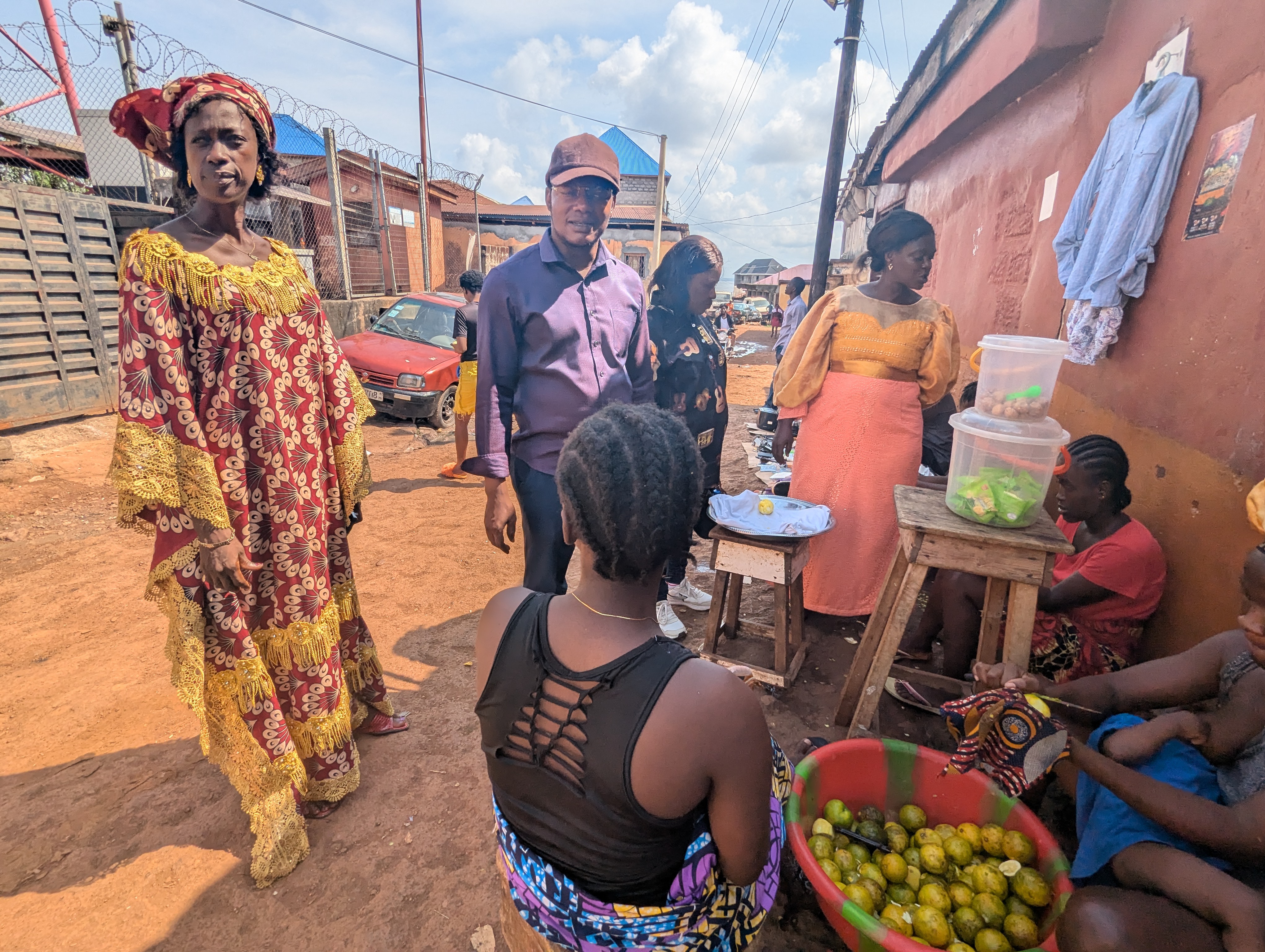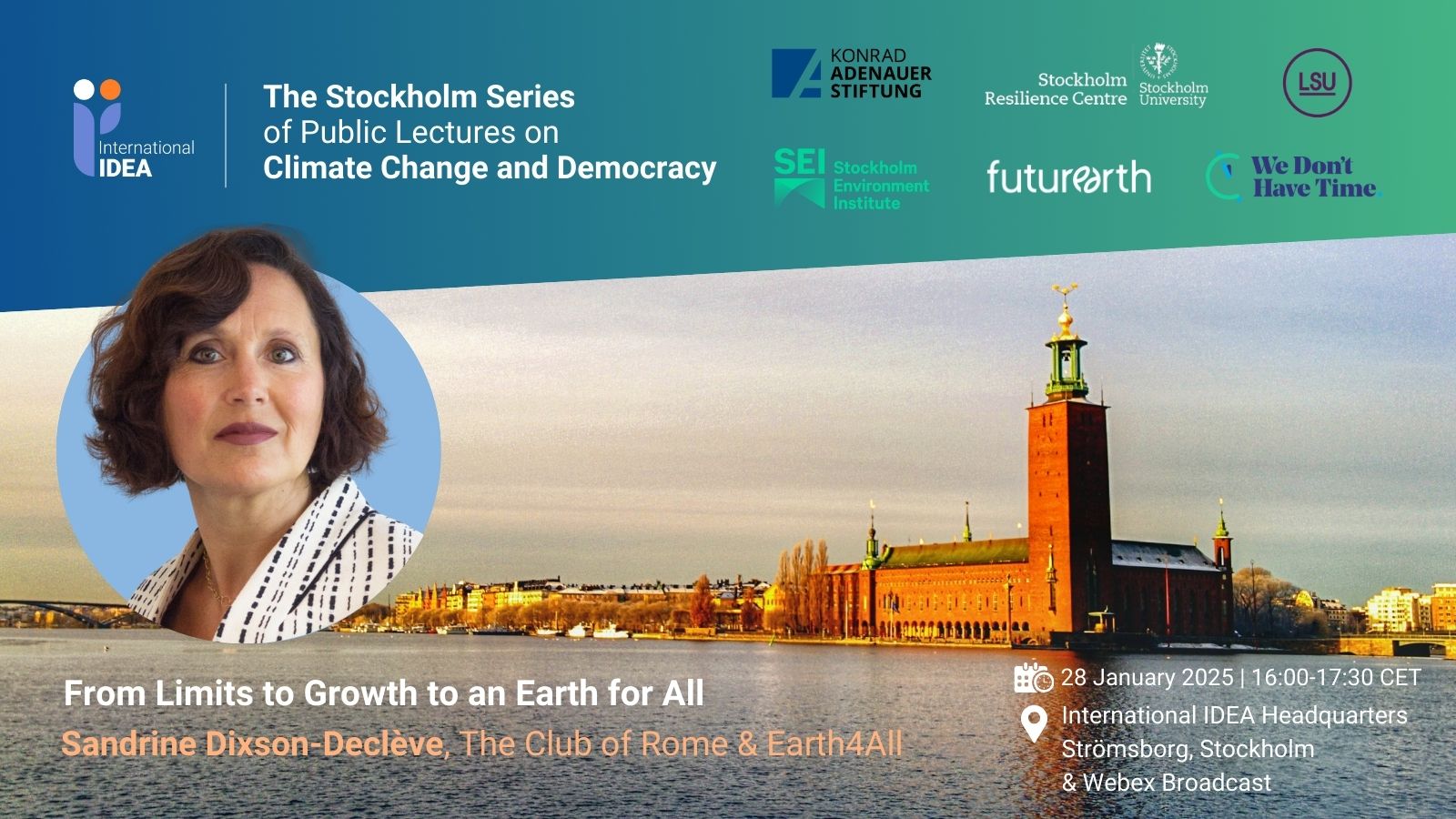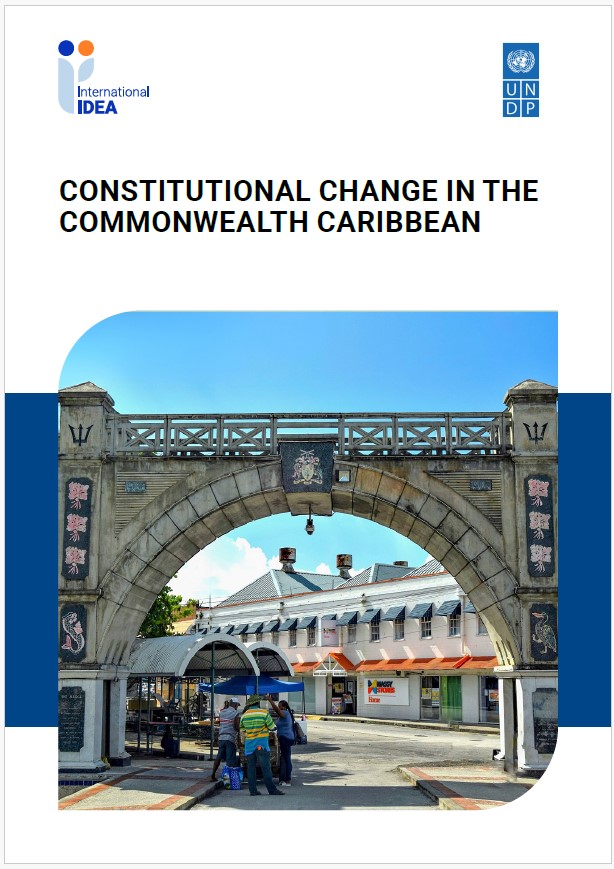Para promover el debate en la materia e impulsar la construcción de una “democracia de ciudadanía para las mujeres” (Elizondo, 2019), la presente edición del Boletín de Justicia Electoral de IDEA Internacional, presenta una serie de textos, experiencias y medidas implementadas para promover la participación política de las mujeres en las democracias de nuestra región.
Search
Region
Country
Type
Aclaración: Las opiniones expresadas en este artículo son exclusivas de su autor e independientes de intereses nacionales o políticos particulares. Además, estas opiniones no representan necesariamente la posición institucional de IDEA Internacional, su Junta de Asesores o su Consejo de Estados Miembros.
This commentary is available in English.
Disclaimer: Views expressed in this commentary are those of the staff member. This commentary is independent of specific national or political interests. Views expressed do not necessarily represent the institutional position of International IDEA, its Board of Advisers or its Council of Member States.
On the occasion of the European Parliament Elections 2019, the International IDEA Europe Office participated in a public open-air event organized by the European Parliament (EP), Sunday evening 26 May 2019, on the EP Esplanade in Brussels.
This Discussion Paper puts together relevant data on the inclusion of young people and women in European Parliament elections.
The global average for women’s representation in parliaments was 24 per cent in January 2019. Political parties are identified as responsible for women’s underrepresentation, given their role as the main gatekeepers of elected decision-making positions in most countries.
If one country can globally exemplify the power of social media in politics, that is Tunisia. In 2011, the 25 years of Ben Ali regime were put to an end by a popular revolution that was, in part, coordinated through social media. Facebook played a significant role as it was the platform that many Tunisians used to communicate their ideas and to organize the different events and protests of the revolution. Many has named the Tunisian revolution as the first Facebook Revolution.
Any election entails risks, the challenge lies in how to confront and overcome such risks, even before threats turn into concrete facts. Under this premise International IDEA has developed an Electoral Risk Management Tool (ERMTool). The ERMTool has been designed in order to help user organizations attain a better understanding of electoral risks, develop awareness of the situation and make well informed, conflict sensitive decisions.
Disclaimer: Views expressed in this commentary are those of the staff member. This commentary is independent of specific national or political interests. Views expressed do not necessarily represent the institutional position of International IDEA, its Board of Advisers or its Council of Member States.
Aclaración: Las opiniones expresadas en este artículo son exclusivas de su autor e independientes de intereses nacionales o políticos particulares. Además, estas opiniones no representan necesariamente la posición institucional de IDEA Internacional, su Junta de Asesores o su Consejo de Estados Miembros.
Toda elección entraña riesgos, el desafío radica en cómo enfrentarlos y superarlos, incluso antes que pasen de amenazas a hechos concretos. Bajo esa premisa IDEA International ha desarrollado la Herramienta de Gestión de Riesgos Electorales (ERM Tool). El ERMTool está diseñado para ayudar a la organización usuaria a lograr una mejor comprensión de los riesgos electorales, desarrollar una conciencia de la situación y tomar decisiones electorales bien informadas y sensibles al conflicto.
Daniel Zovatto, Director Regional para América Latina y el Caribe de IDEA Internacional, y el escritor y columnista Moisés Naím hablaron en el programa de Aristegui sobre el levantamiento cívico-militar en Venezuela liderado por el líder opositor Juan Guaidó. Los expertos analizaron si lo que está ocurriendo en Venezuela es un golpe de Estado o un levantamiento cívico-militar.
Haga clic en el enlace para ver la entrevista:
Aclaración: Las opiniones expresadas en este artículo son exclusivas de su autor e independientes de intereses nacionales o políticos particulares. Además, estas opiniones no representan necesariamente la posición institucional de IDEA Internacional, su Junta de Asesores o su Consejo de Estados Miembros.
This commentary is available in English.
Disclaimer: Views expressed in this commentary are those of the staff member. This commentary is independent of specific national or political interests. Views expressed do not necessarily represent the institutional position of International IDEA, its Board of Advisers or its Council of Member States.
Este comentario está disponible en Español.
The key findings on press freedom derived from the most recent update to the Global State of Democracy (GSoD) Indices data are as follows:
Disclaimer: Views expressed in this commentary are those of the staff member. This commentary is independent of specific national or political interests. Views expressed do not necessarily represent the institutional position of International IDEA, its Board of Advisers or its Council of Member States.
Este comentario está disponible en español.
Aclaración: Las opiniones expresadas en este artículo son exclusivas de su autor e independientes de intereses nacionales o políticos particulares. Además, estas opiniones no representan necesariamente la posición institucional de IDEA Internacional, su Junta de Asesores o su Consejo de Estados Miembros.
This commentray is available in English.
El presente número del Boletín de Justicia Electoral de IDEA Internacional, pretende sistematizar los principales avances en materia de financiamiento político y dar herramientas al lector para que éste pueda responder preguntas claves al respecto.
The agreement that sets the foundation for the International IDEA EU-funded project entitled, “Establishing an Environment for Inclusive, Knowledge-based Dialogue on the Political Process in Ethiopia” was signed in front of representatives from co-implementing partners/agencies InterAfrica Group (IAG) and International Revival Ministry (IRM) as well as other stakeholders on Wednesday, 3 April 2019.
International IDEA’s 32 Member States met in Stockholm on 10 April 2019 and welcomed Luxemburg as their new Member, which joined the organization in December 2018. Together, the Member States form the Council, the governing body of the Institute. Belgium and Spain are the Co-Chairs and lead the Council in 2019.


